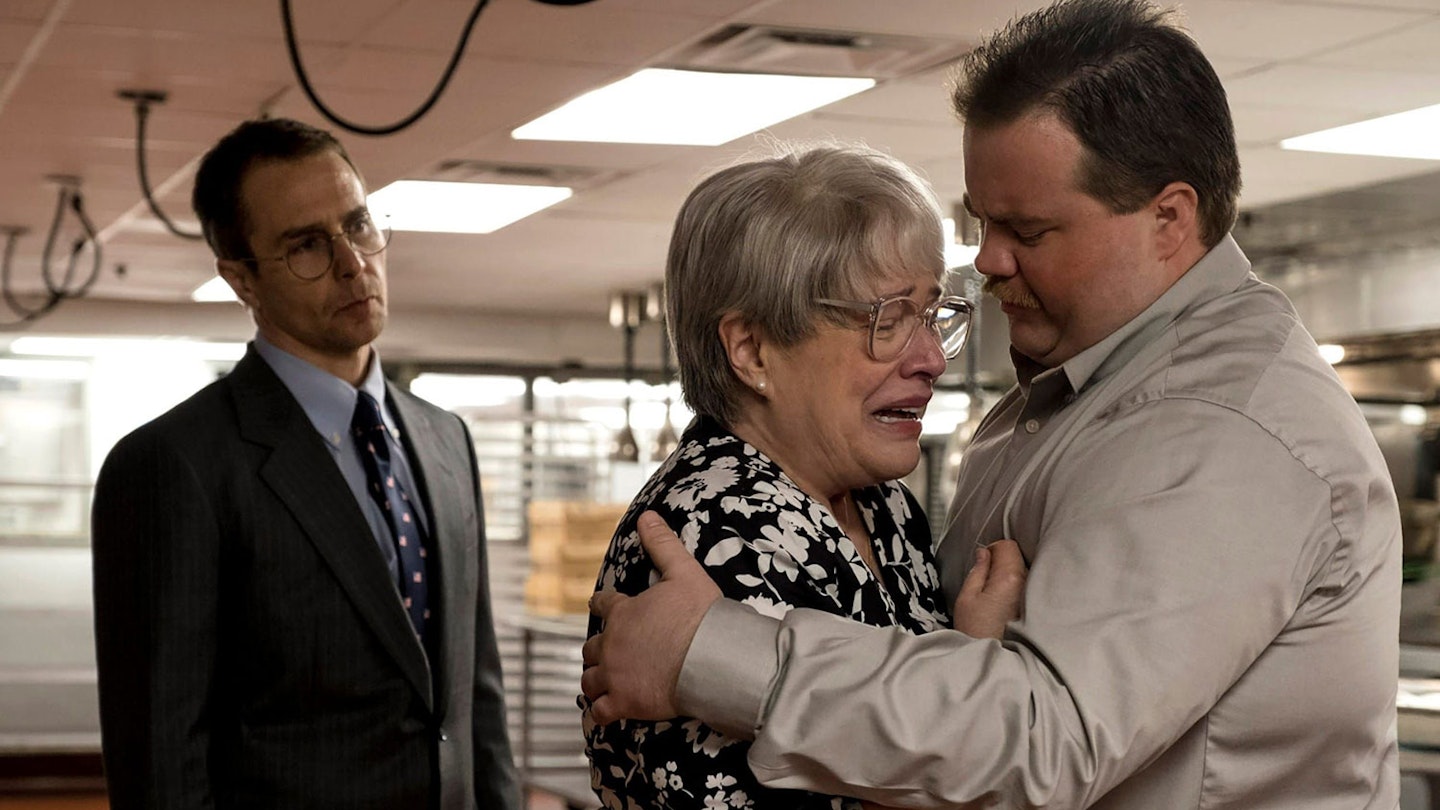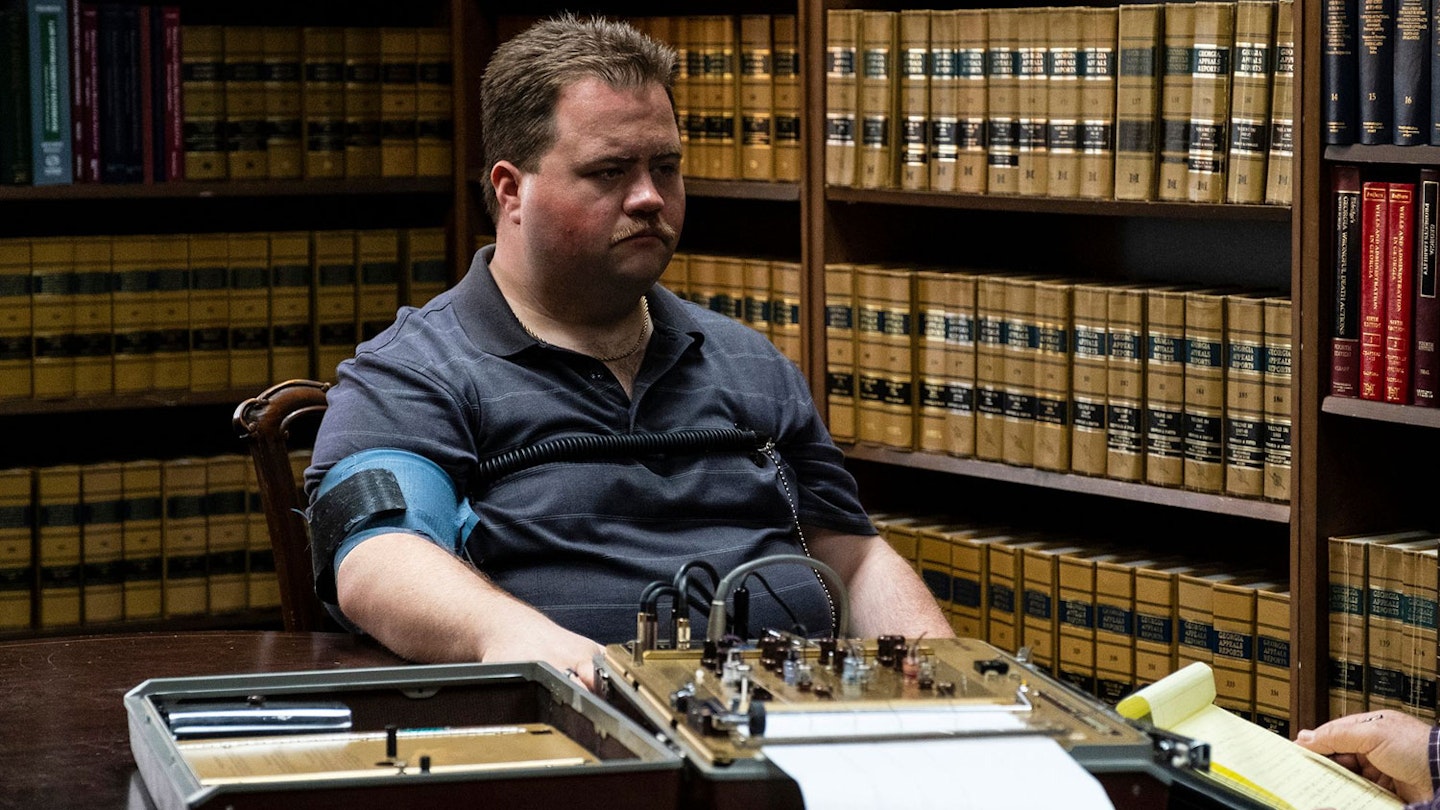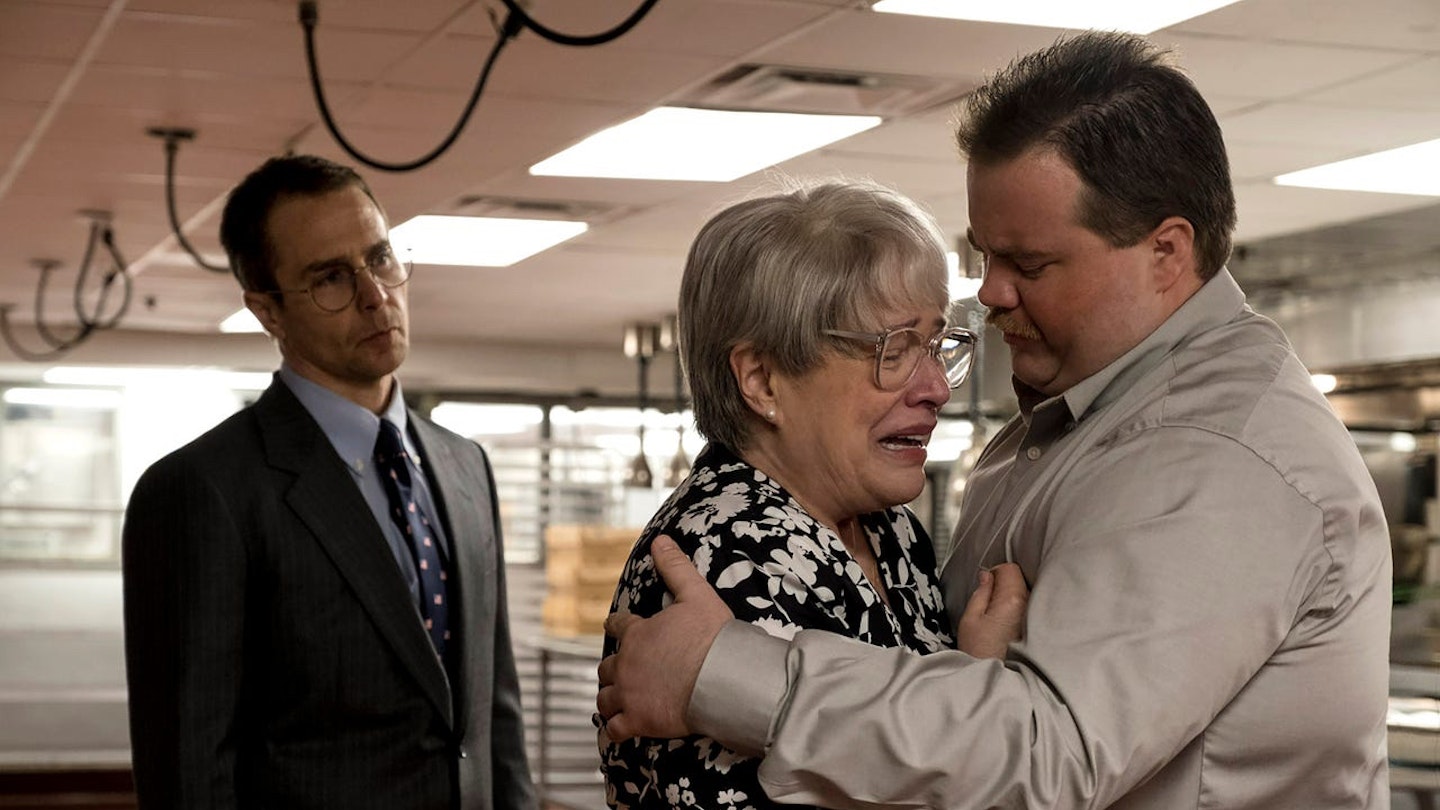Richard Jewell answers the pressing question most of us have been asking since 2009: what if Paul Blart: Mall Cop were remade as a prestige picture? Clint Eastwood’s straight-down- the-middle drama about the security guard (Hauser) who saved countless lives by finding a pipe bomb during a concert celebrating the 1996 Summer Olympics continues his current obsession: the real-life ordinary American who becomes a hero then struggles with the aftermath (see American Sniper, Sully and, to some extent, The 15:17 To Paris). Anchored by a strong performance by Paul Walter Hauser, Richard Jewell is simplistic, but still manages to make Jewell’s plight engaging without ever hitting dramatic highs.

After sketching Jewell’s overzealous passion for law enforcement (as a university security guard he arrested students before they reached the campus), Eastwood and screenwriter Billy Ray recreate the concert bombing in meticulous detail (like Sully’s plane crash, Eastwood peppers it throughout the film to enliven talky procedural scenes). After being hailed an instant hero, Jewell’s life is upturned when FBI agent Tom Shaw (Jon Hamm, with little to work with) tells journo Kathy Scruggs (Olivia Wilde) that Jewell is the only suspect. Making front page news, what follows is a series of (repetitive) scenes with Jewell under house arrest with his mom Bobi (Kathy Bates, who grows in stature as the film goes on) as the media scrum grows more frenzied and the Feds struggle to try to find incriminating evidence.
Clint Eastwood’s simplicity also extends to his take on the material.
Best known for playing the dim-witted racist in BlacKkKlansman and the dim-witted bodyguard in I, Tonya, Hauser is perfect in a role originally earmarked for Jonah Hill (who exec produces here). In his skilful hands, Jewell flits between amicable and annoying (his desire to identify with the law enforcers who are making his life a misery frustrate). Jewell’s chemistry with lawyer Watson Bryant (Sam Rockwell giving it trademark sass and energy) go a long way to make the film affecting. The weak link here is Wilde’s Scruggs, conceived as an aggressive hack and played with wild-eyed intensity by Wilde, who seems to be in a completely different, less interesting film.
Perhaps sprouting from Jewell’s hangdog quality, there is a sombre tenor to the film. Eastwood’s filmmaking runs to his bog-standard, unpretentious M.O., shooting scenes in mid-shot hell — a set-piece juxtaposing Michael Johnson running the 400 metres with Bryant pacing out the walk between the park and pay phone where the bomber made an anonymous 911 call boasts some rare brio. But Eastwood’s simplicity also extends to his take on the material. Richard Jewell venerates the underdog and castigates the Establishment, be it the government, law enforcement or media. In this sense it’s a world-view that might be considered Trumpian: bold, playing hard on simple sentiment and — Hauser aside — very little in the way of nuance.

